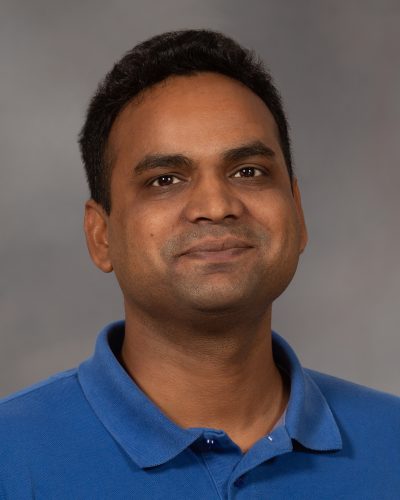This time Scientific Bangladesh has talked with PhD student Iftekhar Rafiqullah. His insights might be helpful  for other current and future PhD students. Here is what he says.
for other current and future PhD students. Here is what he says.
1. Scientific Bangladesh: Briefly introduce our readers with yourself, your PhD topic, and University
Iftekhar Rafiqullah: I am Iftekhar Rafiqullah. I have completed my BS and MS in Microbiology from Dhaka University. Now, doing my PhD at the University of Mississippi Medical Center (UMMC); located in Jackson, Mississippi. UMMC is a tertiary medical center and one of the top medical research schools in USA. Before, joining here, I worked with the Child Health Research Foundation (CHRF, where the first coronavirus genome was sequenced in Bangladesh) and also with ICDDR,B. As a PhD researcher, I am working on genomic prediction of complex bacterial phenotypes like antibiotic heteroresistance and bacterial fitness using next-generation sequence (NGS) data. My PhD research work will invent a new genome risk scoring approach to study and predict above mentioned complex phenotypes of infectious disease pathogens.
2.Scientific Bangladesh: What has made you gone for PhD ? In other words, why you are doing a PhD?
Iftekhar Rafiqullah: In my high school, when I started to study biology, I dreamed to be a medical scientist. As research scope is limited in medical education in our country, I choose to study Microbiology at Dhaka University. After my graduation from Dhaka University, I started gaining research experience while working at CHRF with two internationally renowned scientists in Bangladesh. One is Dr. Samir Kumar Saha and the other one is Dr. Abdullah Baqui from Johns Hopkins University School of Public Health in Baltimore, Maryland, USA. At that time, these two renowned scientists worked collaboratively in neonatal infectious diseases in Bangladesh. During my work with these people, I realized that I need specialized training to be an independent researcher of my own. So, I started looking for PhD level scholarship.
3.Scientific Bangladesh: Tell us about your pathway to manage scholarship or funding for PhD
Iftekhar Rafiqullah: This is not an easy job in Bangladesh where only a few people want to pull your hand up and guide you to the next level. However, I am lucky that my MS thesis level research mentor (Dr. Md. Mozammel Hoque) was very confident about my ability and gave me inspiration and guidance all the time. All of my teachers and friends also inspired me. So, I started communicating with Professors of different foreign medical schools who is working on infectious diseases. By that time, I was in very good shape to understand what research really interests me. I studied their works, told them my interest and experience, and shared my research synopsis with them. This process took lots of patience and back and forth communications with the Professors working in the research topic of my interest. By that time, I also took a standardized test (IELTS, GRE) and ensured above-average scores. By the way, if you already know some people there in your target foreign schools, contact them and try to gather as much information as possible about the lab, that helps. Please note that the admission and PhD funding process varies in North America, Europe, and Australia. At the end of these gruesome processes, I could be able to manage a couple of fully-funded PhD scholarships in Australia, Europe, and the USA. However, I decided to go to the USA because of the good education system there.
4.Scientific Bangladesh: How will you get PhD, by submitting a thesis or publishing a certain no of publications(journal articles)?
Iftekhar Rafiqullah: I will have to submit both thesis and have at least one first-author publication in peer-reviewed journals.
5.Scientific Bangladesh: What is our key to maintain a good relationship with your supervisor?
Iftekhar Rafiqullah: It varies by mentors, schools, institutions, and country. In my case, hard work, innovation, and good communication are the keys.
6.Scientific Bangladesh: What principle you follow to maintain a good relationship with your labmates?
Iftekhar Rafiqullah: I try to be empathetic to my lab mates.
7.Scientific Bangladesh: PhD is a stressful job? How do you manage or release stress?
Iftekhar Rafiqullah: I spent my hard to get spare time with my family. Go out, drive long, and enjoy time with my family.
8.Scientific Bangladesh: How many days in a week you go to the lab? Why?
Iftekhar Rafiqullah: 5-7 days in a week depending on workloads. Because this is my PhD and I have to do my work. No one is going to it for me.
9.Scientific Bangladesh: PhD is considered as training for a career in Research. What 1. technical and 2. Soft skills you are focusing to develop or developed by this time?
Iftekhar Rafiqullah: True. 1. Grant writing skills, good presentation skills, important laboratory techniques 2. Good interpersonal communication skill, networking
10.Scientific Bangladesh: What is your future plan? Want to go back to Bangladesh or not?
Iftekhar Rafiqullah: Yes, I want to go back to Bangladesh and help reshape our BD health sector to be driven by research accomplished data generated from our own health system. However, reality might be different.
10.Scientific Bangladesh: What are your suggestions for prospective PhD students?
Iftekhar Rafiqullah: Never give up. Talk to current PhD students. Keep your head down and work hard to achieve your goal.
